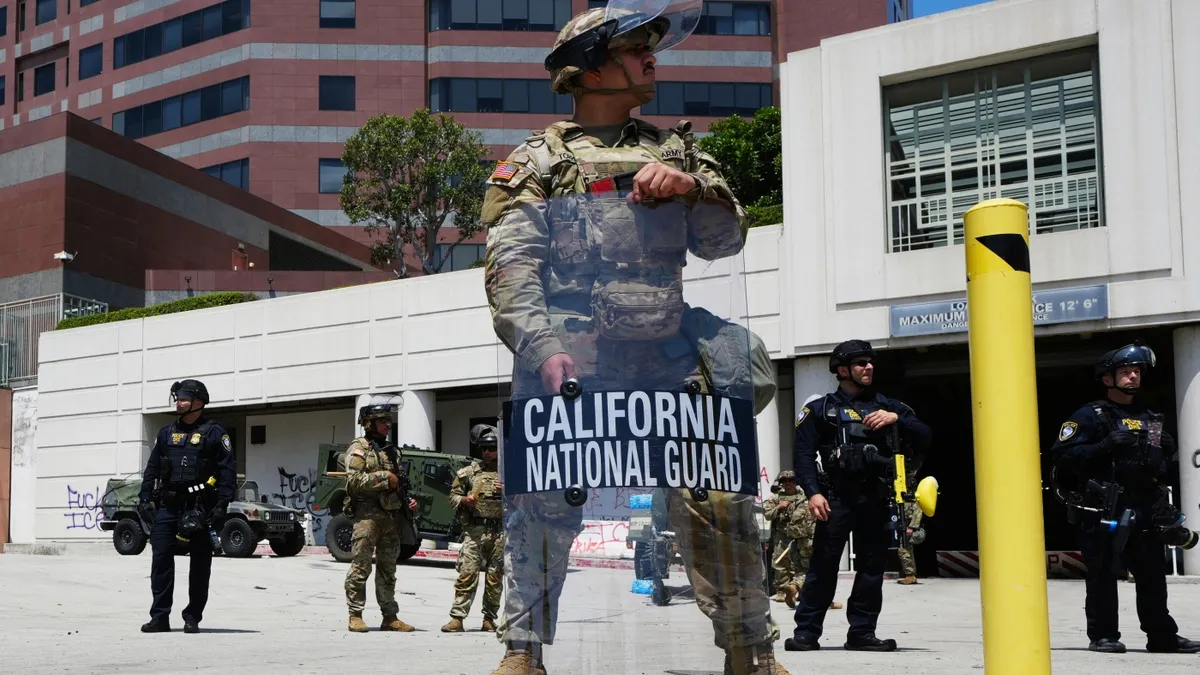
A federal judge has delivered a significant ruling against President Trump regarding the deployment of the National Guard in Los Angeles. The judge sided with the state of California, asserting that the president erred in the activation of the National Guard. This ruling mandates that President Trump return control of the National Guard to California Governor Gavin Newsom by noon on Friday (Pacific Time). While this decision could potentially be appealed, it represents a notable setback for the White House amid ongoing disputes over presidential powers in addressing illegal immigration and the public's opposition to such measures.
During a recent hearing, District Judge Charles Breyer rejected the argument put forth by the administration's lawyer, who claimed that the courts lacked the authority to review a president's decision regarding the necessity of the National Guard. "That's the difference between a constitutional government and King George," Judge Breyer stated, emphasizing that a leader cannot simply declare something to be true without due process. This ruling could reshape the landscape of presidential authority in similar situations.
Starting Saturday, President Trump had deployed approximately 4,000 California National Guard members along with several hundred U.S. Marines to Los Angeles, despite opposition from Governor Newsom. Typically, National Guard units across the country are under the command of state governors; however, they can be federalized by the president in times of need. Judge Breyer noted during the hearing that while he could not rule on the deployment of the Marines, there was a possibility they might replace the National Guard troops.
In his order to deploy the National Guard, President Trump cited attempts to obstruct immigration agents in Los Angeles, claiming these actions amounted to a form of rebellion against the authority of the U.S. government. Notably, this incident marks the first time in 60 years that a president has activated a state's National Guard despite the objections from the state's governor. The last comparable situation occurred in 1965 when President Lyndon Johnson sent troops to Alabama to protect civil rights demonstrators.
Governor Newsom has characterized Trump's military deployment as unlawful, stating that the federal government is now turning the military against American citizens. "Sending trained warfighters onto the streets is unprecedented and threatens the very core of our democracy," he asserted in a statement when California filed a lawsuit to reclaim control of the National Guard. California officials argued that local law enforcement was effectively managing the protests, which were brief and isolated, and that the military presence actually escalated tensions rather than alleviating them.
California's lawsuit emphasized that there had been no rebellion or insurrection in the past three days, nor had the protests escalated to levels seen in previous instances of civil unrest in Los Angeles and other major cities. The state pointed out that no deaths or serious injuries had been reported, undermining the administration's narrative of a chaotic situation necessitating military intervention.
The White House defended its actions in court, arguing that ongoing interference with immigration agents justified the use of military forces. Justice Department lawyers clarified that the military was not conducting law enforcement duties but was intended to protect or accompany federal agents and their operations. This ruling and the ongoing legal battle highlight the complex dynamics between state and federal powers, especially in matters of national security and immigration enforcement.
This is a developing story, and updates will be provided as more information becomes available regarding the National Guard's deployment and the ongoing legal proceedings.